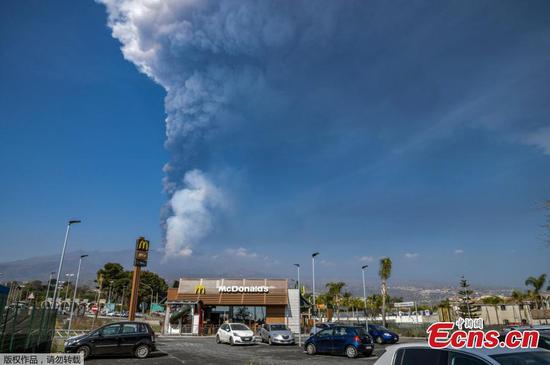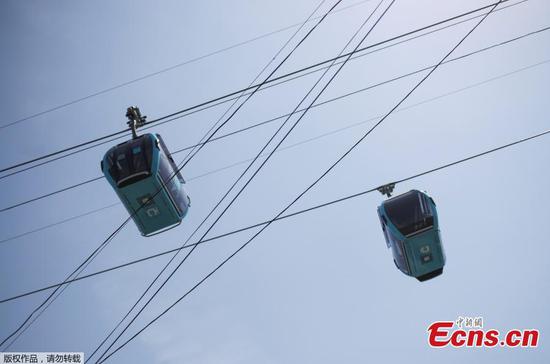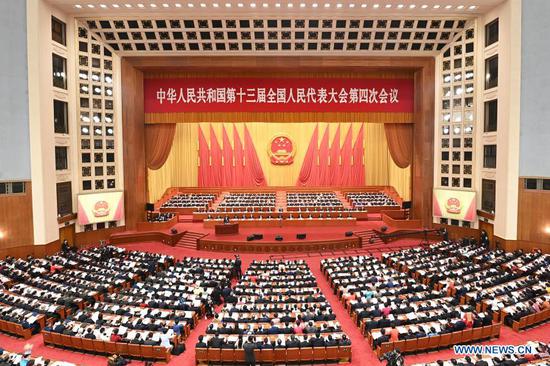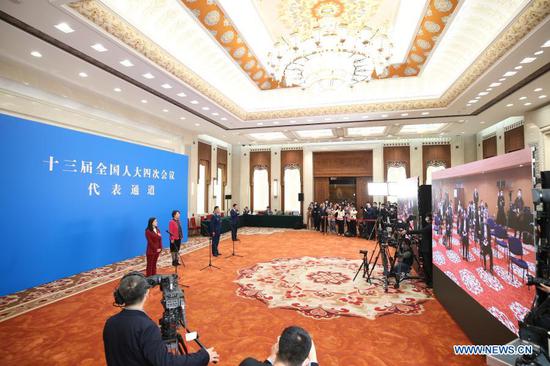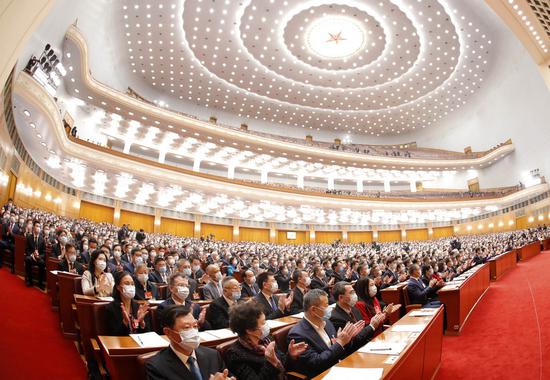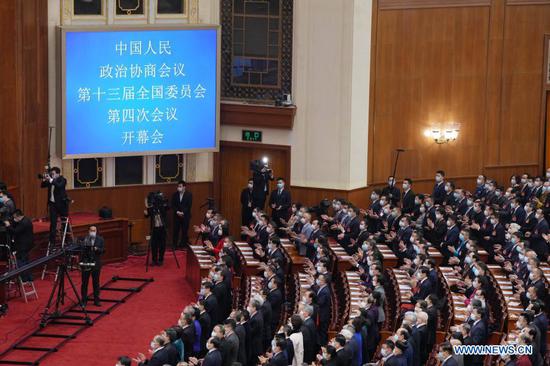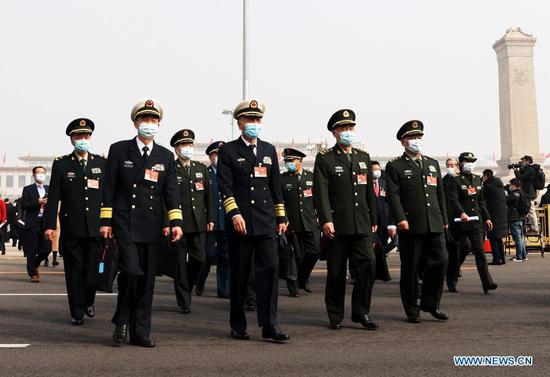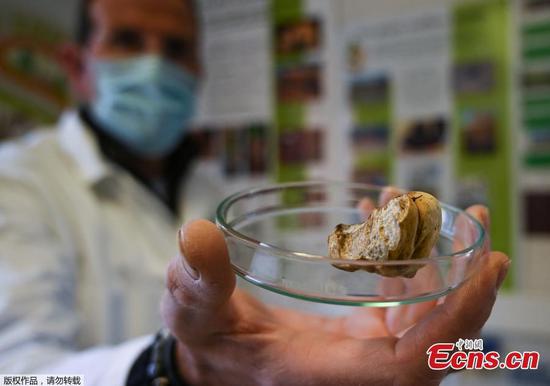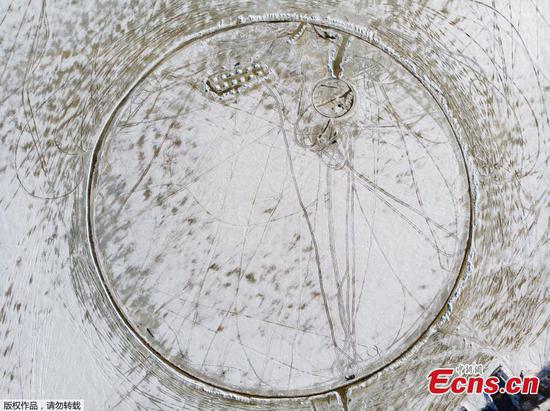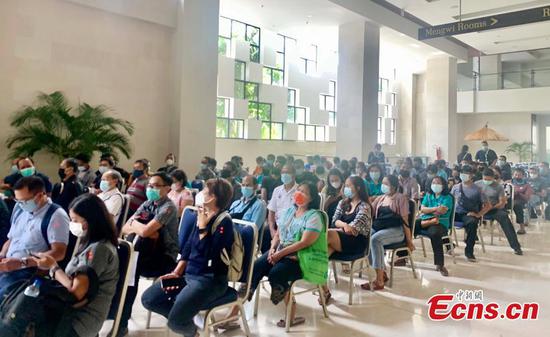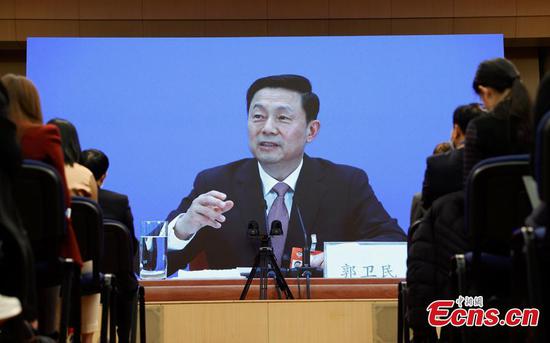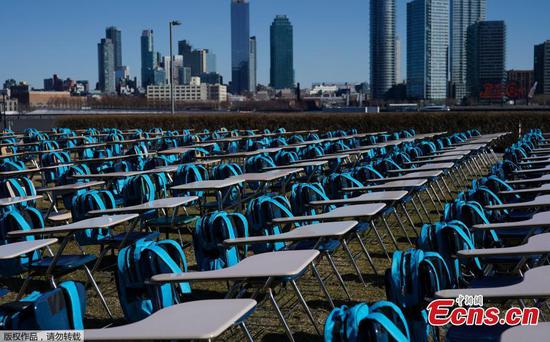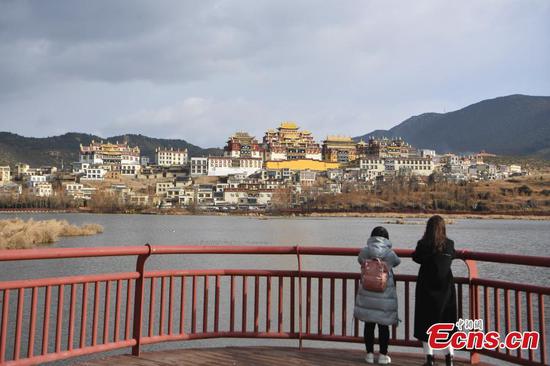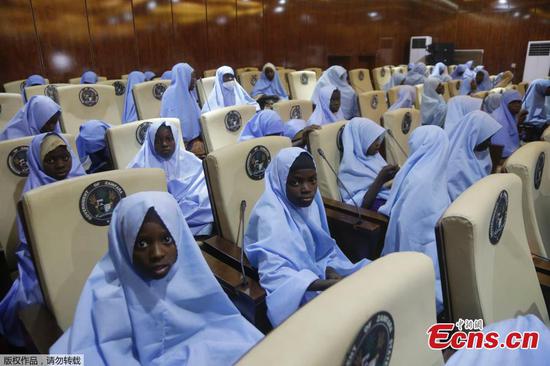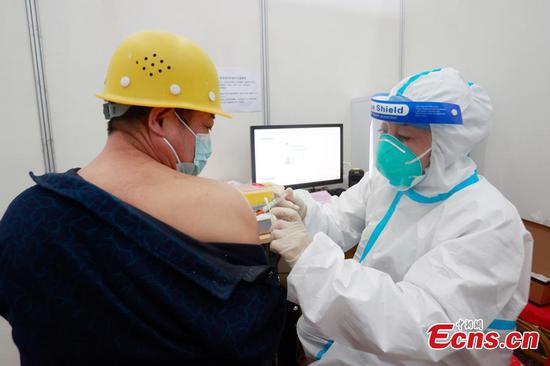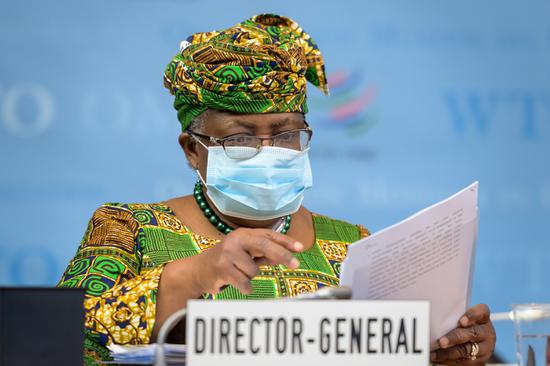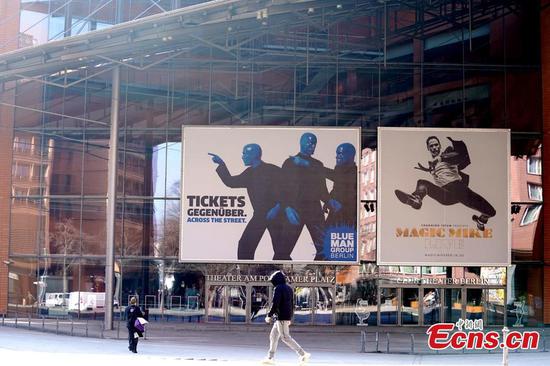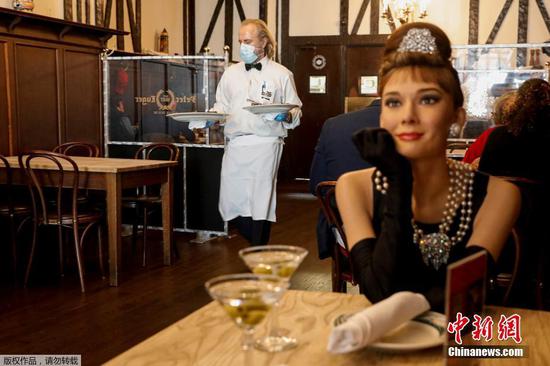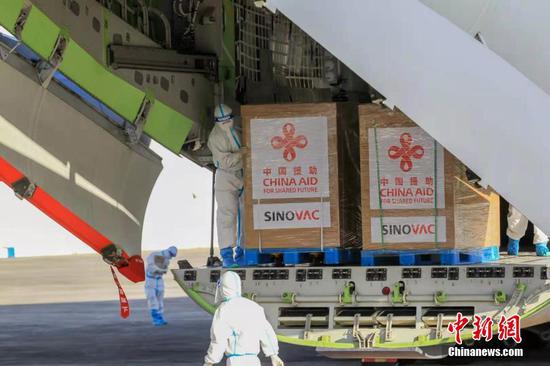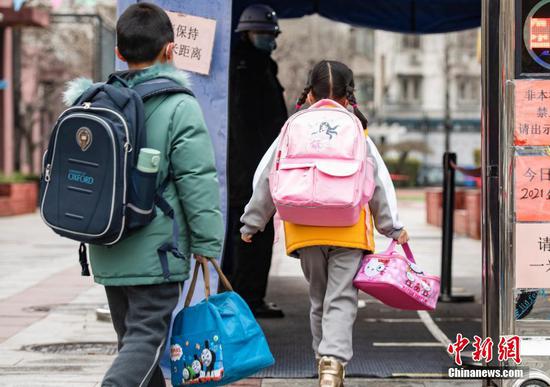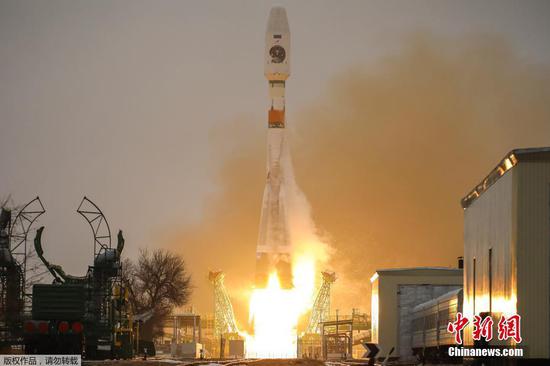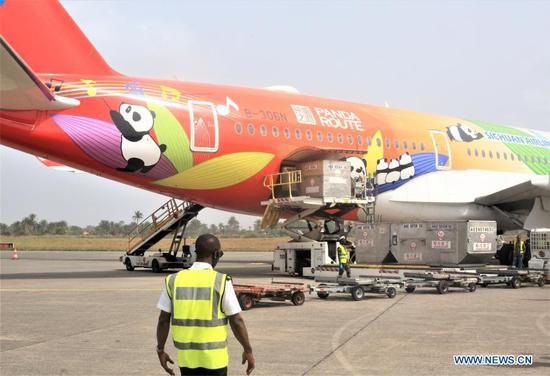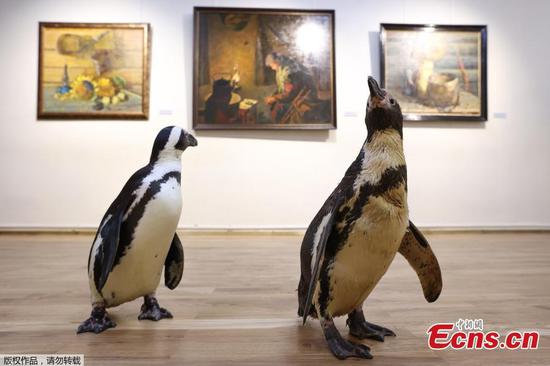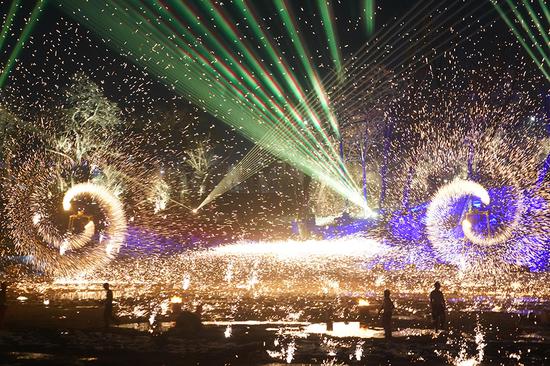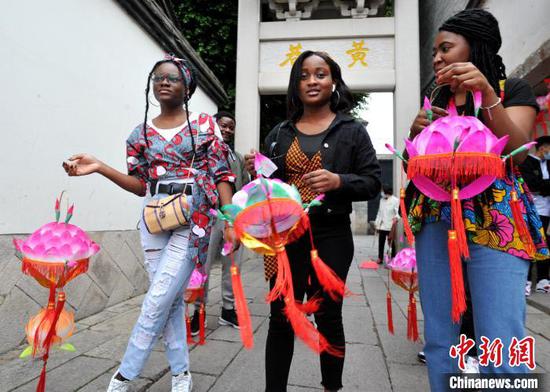
Chinese Ambassador to Egypt Liao Liqiang (left) shakes hands with Hossam Zaki, the Arab League's assistant secretary-general, during a reception ceremony of the Chinese COVID-19 vaccines on Thursday in Cairo, Egypt. XINHUA
China provided on Thursday a batch of Sinopharm COVID-19 vaccines to the Arab League general secretariat in Cairo, fulfilling its promise to share the vaccines with other countries.
The league's Assistant Secretary-General, Hossam Zaki, expressed his appreciation for China's medical assistance to the pan-Arab body. He said China's medical support will effectively enhance the anti-epidemic capabilities of the Arab world.
"The Arab countries are willing to maintain long-term friendly cooperative relations with China and push the Arab-Chinese strategic partnership to a higher level," the AL senior official said.
China is also willing to work with Arab countries to continue to uphold the spirit of solidarity and jointly advocate peace, Chinese Ambassador to Egypt Liao Liqiang said.
"This is a vivid interpretation of the China-Arab community of health and wellness, and it marks another solid step toward building a China-Arab community with a shared future," he said.
Previously, China has sent two batches of medical supplies to the pan-Arab organization.
The vaccine-related cooperation is progressing smoothly between China and a number of Arab states including the United Arab Emirates, Egypt and Morocco.
Tunisia's Ministry of Health announced on Thursday the Chinese Sinovac COVID-19 vaccine had been officially approved for marketing in the country.
Elsewhere in the world, a significant percentage of the public in the US say they are hesitant about getting a jab despite US President Joe Biden announcing there will be enough vaccine in May for all adults in the country. Some anti-vaccine activists are also claiming that COVID-19 shots are deadly.
A poll from The Associated Press-NORC Center for Public Affairs Research, which surveyed 1,055 adults from Jan 28 through Feb 1, found that while 67 percent of them said they will definitely get vaccinated or already have been inoculated, 15 percent are not certain they will.
Of those who said they are skeptical in getting the vaccine, 60 percent cited concerns about side effects, and 48 percent are waiting to see if it is safe.
About one-third of the US public are hesitant about getting vaccinated, the new poll said. Among those, 19 percent say they will probably receive the vaccine, and 17 percent say they probably will not.
Anti-vaccine groups are blaming medical problems of some patients on COVID-19 vaccines, even when it is clear that age or underlying health conditions are actually at fault.









